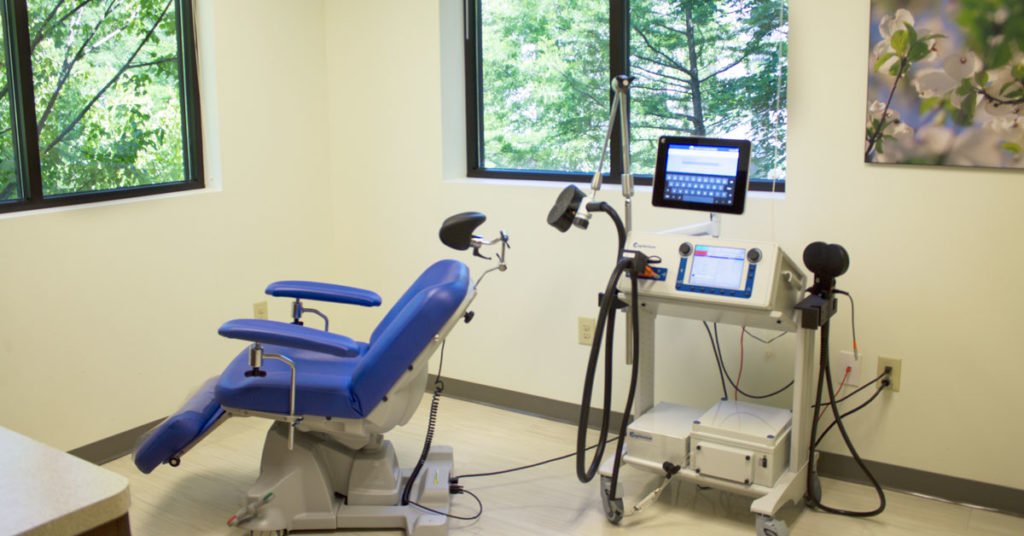Skyland Trail Offers Theta Burst Stimulation for Treatment-Resistant Depression
Atlanta, GA – Skyland Trail, a nationally recognized nonprofit mental health treatment organization for adults and adolescents with mental illness, recently began offering Theta Burst transcranial magnetic stimulation (TMS) services for adult patients with treatment-resistant depression. Skyland Trail began offering TMS services in 2017 and recently acquired the new Theta Burst technology to improve the patient experience.
The new system, a liquid-cooled bent figure-8 Theta Burst Stimulation system manufactured by MagVenture TMS Therapy® in Alpharetta, GA significantly reduces the length of TMS treatment sessions. TMS patients receive treatment sessions five days per week for six to nine weeks.

“Previously, a single TMS session lasted more than 30 minutes,” says Ben Hunter, MD, Medical Director of Professional Services at Skyland Trail. “With Theta Burst technology, patients can complete a TMS session in less than 5 minutes without any additional side effects or risks. Our patients have less interruption to their daily schedules and can get back to their workplaces, homes, families, or other planned activities quickly.”
Approved by the FDA in 2008, TMS is a non-invasive treatment for adults experiencing depression. TMS uses magnetic energy to create an electrical current in the brain that targets the dorsolateral prefrontal cortex, an area of the brain implicated in depression and anxiety. The newer Theta Burst TMS gained FDA approval in 2019.
While conventional TMS uses a 10 Hz magnetic frequency in several cycles of 26 second bursts for a total session of 20-40 minutes, intermittent Theta Burst Stimulation (iTBS) uses a layered magnetic frequency in cycles of two second bursts for a total session of about three minutes.
During each session, the patient is awake and alert. No anesthesia is required. The patient sits in a comfortable reclining chair while a part of the TMS machine rests lightly on the top of the scalp. After each session, patients can resume normal activities for the rest of day including driving.
Multiple studies indicate that TMS has low risks and minimal side effects and is an effective treatment for major depressive disorder, obsessive-compulsive disorder, and other psychiatric illnesses.
Skyland Trail offers TMS treatment services through the Glenn Family Wellness Clinic as an outpatient service to the community and as an add-on service to adult clients in its evidence-based psychiatric residential and day treatment programs. TMS services at Skyland Trail are in-network with many insurance plans offered by Aetna, Blue Cross Blue Shield, Cigna, and United Health Care. Private pay is also accepted.
For more information about TMS Therapy at Skyland Trail, visit www.skylandtrail.org/tms.
